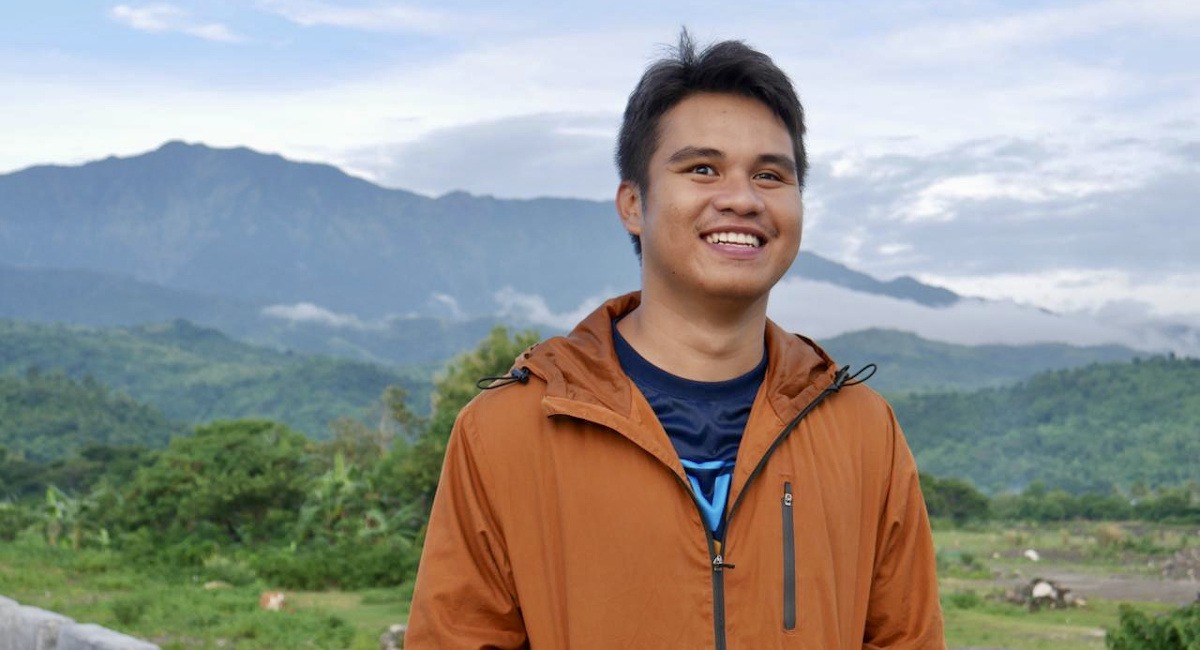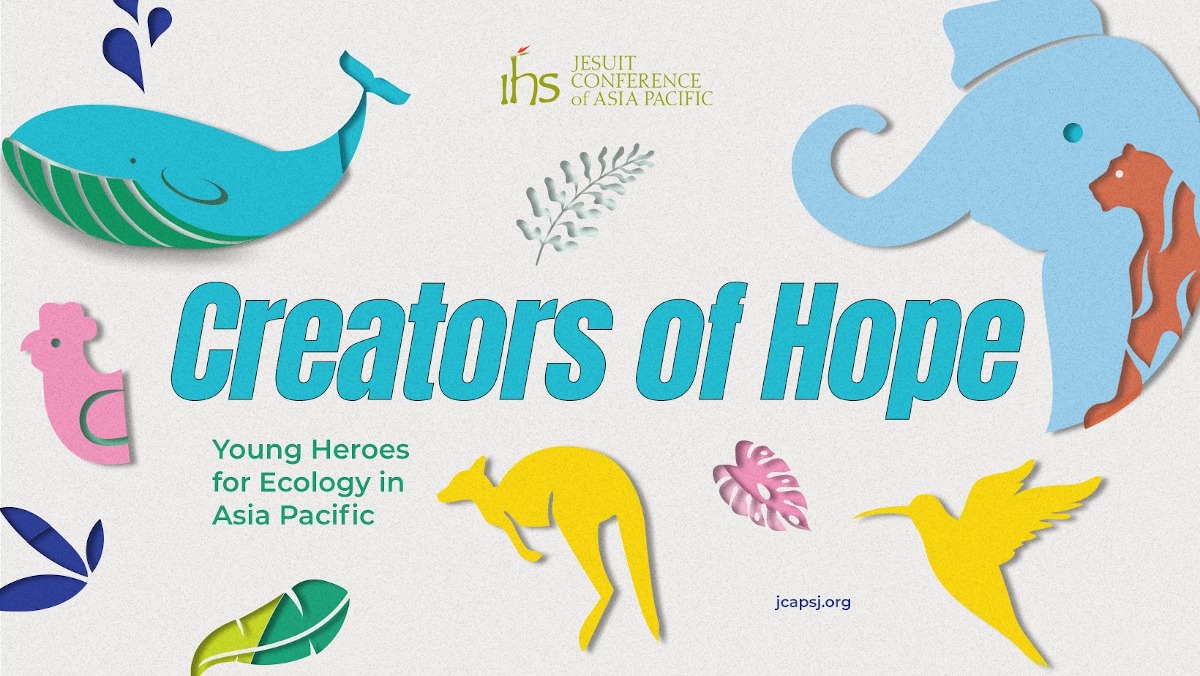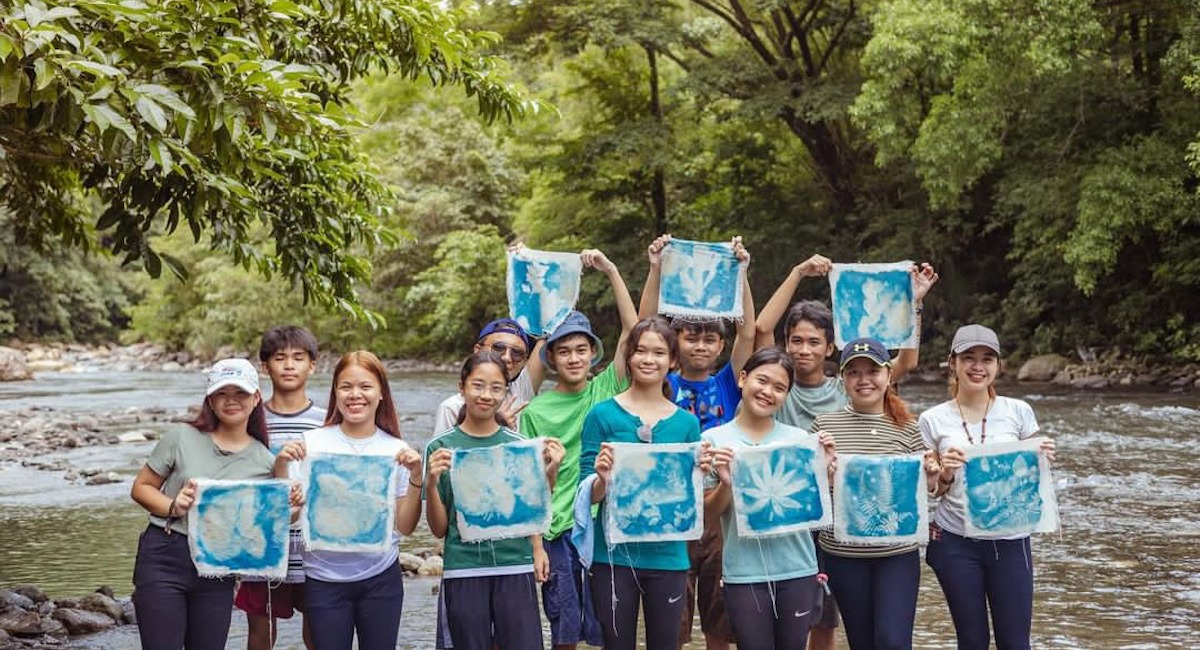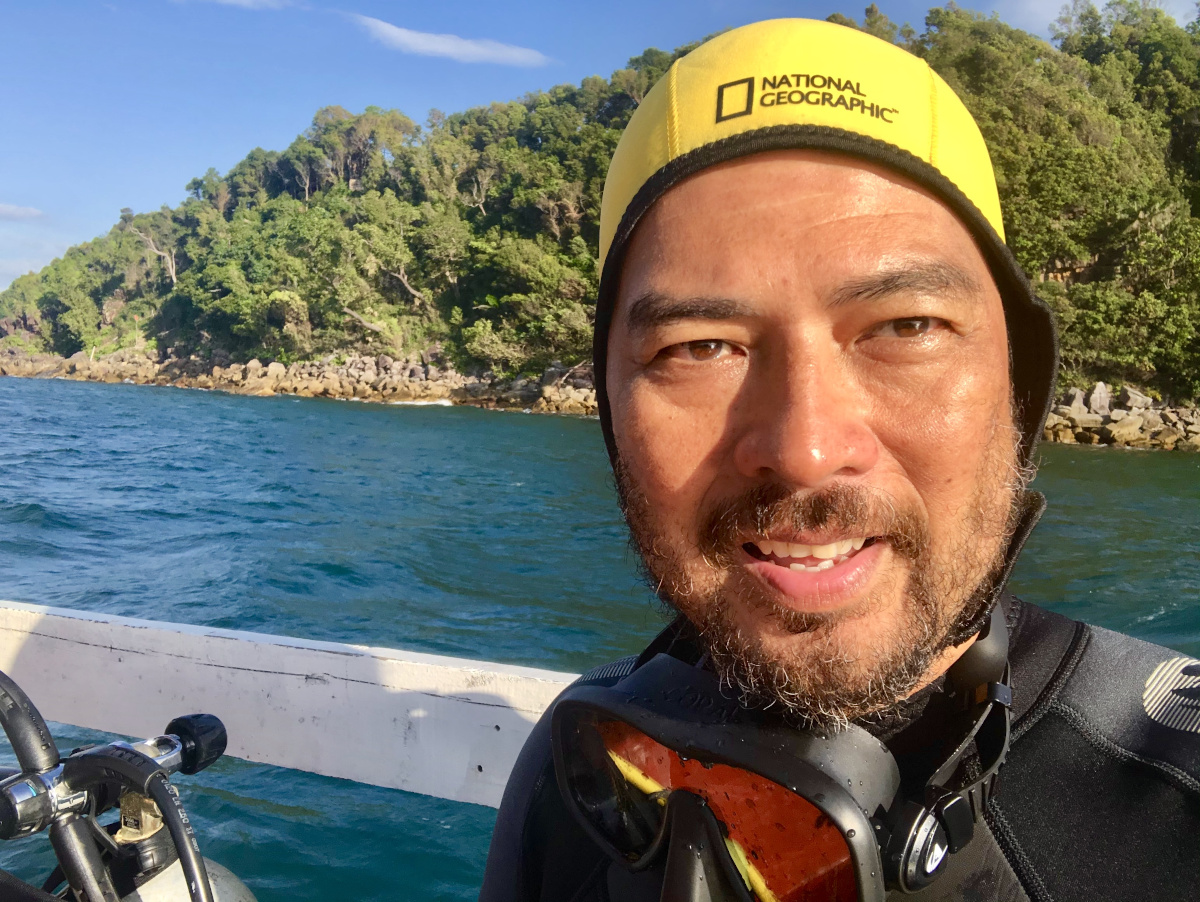 Javie Barcinal was only 18 years old in 2019, when he and some friends came together and formed what is now called the “Dulungan Youth” of Antique province, Philippines. They named their group after the “dulungan”, the local name for the Visayan wrinkled hornbill (Rhabdotorrhinus waldeni), which is a critically endangered species living in the rainforests of the Negros and Panay islands.
Javie Barcinal was only 18 years old in 2019, when he and some friends came together and formed what is now called the “Dulungan Youth” of Antique province, Philippines. They named their group after the “dulungan”, the local name for the Visayan wrinkled hornbill (Rhabdotorrhinus waldeni), which is a critically endangered species living in the rainforests of the Negros and Panay islands.
In 2022, at age 21, Javie applied for and received a grant from the Creators of Hope programme of the Reconciliation with Creation network. In the name of the Dulungan Youth, he proposed a project called “Paglaum”, meaning “hope” in the local Kinaray-a language. The project’s goal is to conduct writing workshops for young people so they can highlight and communicate to a broader audience the forest conservation efforts of the indigenous communities of the Central Panay Mountain Range.
Recently, we visited Javie in his hometown of Culasi, Antique, to assess the progress of Paglaum. We found out that due to various reasons and several challenges, the implementation of the project, which commenced in February 2023, was conducted online and did not yield the desired outcomes.
 Five months later, in July, the Dulungan Youth conducted a sequel, Paglaum 2, focusing on the self and ecology, using various art media to freely express each one’s understanding of and relationship with nature. Paglaum 2 included art workshops on cyanotype printing, zine making, watercolour painting, and photography, as ways to capture the participants’ relationship with the local ecosystem. Held in the foothills of Culasi, Paglaum 2 was successful in bringing like-minded youth together, “letting young people be young people,” according to Javie, and creating a safe space to process their experiences with nature.
Five months later, in July, the Dulungan Youth conducted a sequel, Paglaum 2, focusing on the self and ecology, using various art media to freely express each one’s understanding of and relationship with nature. Paglaum 2 included art workshops on cyanotype printing, zine making, watercolour painting, and photography, as ways to capture the participants’ relationship with the local ecosystem. Held in the foothills of Culasi, Paglaum 2 was successful in bringing like-minded youth together, “letting young people be young people,” according to Javie, and creating a safe space to process their experiences with nature.
Several other workshops followed: Paglaum 3 was held in Sebaste in August, Paglaum 4 took place in Magsaysay in September, and Paglaum 5 returned to Culasi in November. Each Paglaum event offered something different for the youth, appropriated for their current context.
In addition to the art-ecology activities featured in earlier versions of Paglaum, Paglaum 3 incorporated community-mapping from the youth’s perspective. Paglaum 4 introduced leaf-stamping, allowing participants to create art using natural materials. Furthermore, they engaged in reflection and discussion on a short animation film produced by the Dulungan Youth, highlighting the importance of ecosystem integrity and the role of women and youth in the conservation of the land. Finally, Paglaum 5 introduced the concept of “fantasy island”, where the participants were encouraged to imagine the kind of world they desired. Through “grief circles”, they were given the freedom to express their experiences and anxieties on the climate and ecosystem crises.
 What distinguishes Paglaum is how it creates a safe and intimate space for young people to gather and express themselves freely through various art media. By engaging in these creative activities, the participants are able to process their experiences, forge meaningful connections with nature, and ultimately deepen their sense of hope. Javie says the group prioritises the process involved in a Paglaum workshop, placing emphasis on creating a caring atmosphere for all participants.
What distinguishes Paglaum is how it creates a safe and intimate space for young people to gather and express themselves freely through various art media. By engaging in these creative activities, the participants are able to process their experiences, forge meaningful connections with nature, and ultimately deepen their sense of hope. Javie says the group prioritises the process involved in a Paglaum workshop, placing emphasis on creating a caring atmosphere for all participants.
The Dulungan Youth are now preparing for Paglaum 6, scheduled for June or July of this year. Unlike earlier iterations that focused on self-expression and peer interaction, this upcoming installment of the Paglaum series will delve into social and ecological activism.
Paglaum 6 will touch significantly on the Bacong Bridge Massacre, a tragic event that happened in Culasi on 19 December 1981 during the Martial Law era in the Philippines. On that day, five farmers were shot and killed by the Philippine Constabulary while leading a protest march towards the mayot’s office to address various injustices they were facing. By reflecting on the Bacong Bridge Massacre, Paglaum 6 hopes to inspire activism among young people and draw lessons on social and ecological justice given our present time.
 Fr Gabriel Lamug-Nañawa SJ is the coordinator of the Reconciliation with Creation network of the Jesuit Conference of Asia Pacific.
Fr Gabriel Lamug-Nañawa SJ is the coordinator of the Reconciliation with Creation network of the Jesuit Conference of Asia Pacific.

